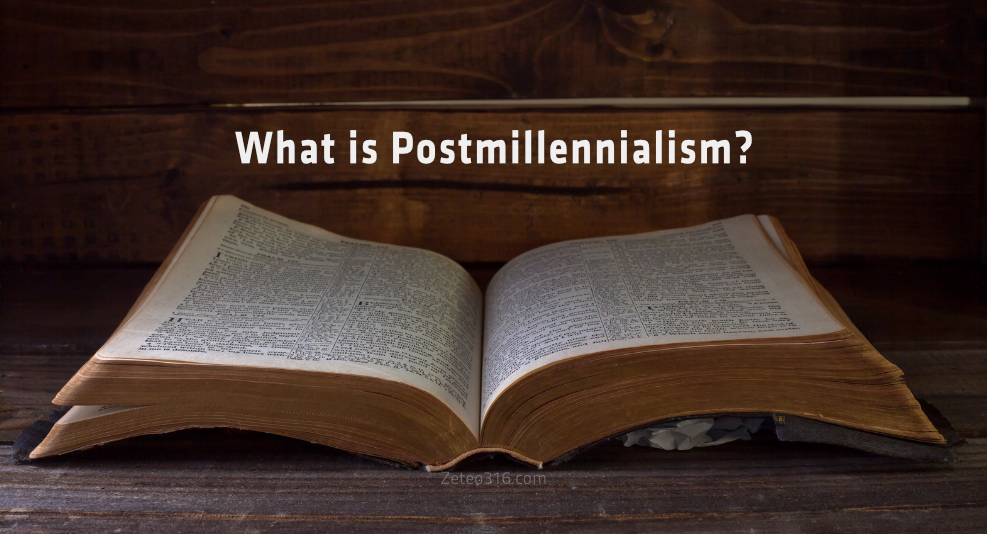
What is Postmillennialism? Postmillennialism in America is experiencing resurgence, at least from my somewhat limited perspective on social media.
Why is it apparently becoming popular?
Its resurgence in popularity might be attributed to several influential Reformed men who employ various social media outlets (Twitter, YouTube and podcasts etc). The current interest in the Puritans could be another reason; for example, Jonathan Edwards was postmillennial. It’s difficult to gauge the extent of this influence, or the aggregate of its proponents.
Perhaps part of the current interest might be attributed to books such as Doug Wilson’s Mere Christendom, and the interest in Christian Nationalism. I don’t know.
Whatever the case, these men regularly engage politics, culture and religion. They are Christian brothers who defend of God’s Word and His sovereignty, and (perhaps ironically) consistently offer encouragement to Christians facing a world and nation which is increasingly becoming more pagan and anti-Christian.
What is Postmillennialism?
According to Got Questions,
Postmillennialism is an interpretation of Revelation chapter 20 which sees Christ’s second coming as occurring after the “millennium,” a golden age or era of Christian prosperity and dominance. The term includes several similar views of the end times, and it stands in contrast to premillennialism (the view that Christ’s second coming will occur prior to His millennial kingdom and that the millennial kingdom is a literal 1,000-year reign) and, to a lesser extent, amillennialism (no literal millennium).
Postmillennialism is the belief that Christ returns after a period of time, but not necessarily a literal 1,000 years. Those who hold this view do not interpret unfulfilled prophecy using a normal, literal method. They believe that Revelation 20:4-6 should not be taken literally. They believe that “1,000 years” simply means “a long period of time.” Furthermore, the prefix “post-” in “postmillennialism” denotes the view that Christ will return after Christians (not Christ Himself) have established the kingdom on this earth…continue reading
The problem
Postmillennialists cite Psalms and OT prophecies which describe wondrous and peaceful conditions on the earth as evidence for a millennium before Christ’s return. See Psalm 72 and Isaiah 65: 17-25. They refer to the Great Commission (Matt 28:19-20) and the mustard seed/leaven parable (Matt 13:31-33) to show a gradual and large growth of the kingdom after a small beginning. See MacArthur and Mayhue’s Biblical Doctrine (pages 886-888).
Premillennialists and amillennialists can use the same texts of fabulous transformation, albeit within a different millennial position and timeframe. Moreover, there is no explicit biblical evidence of a “Christian kingdom” which ushers in Christ’s return. This is deduced. In fact Scripture points to worsening conditions prior the Second Advent. See texts such as Luke 18:8 and 2 Tim 3:1-2, 12-13. Also compare Zechariah 14 with Rev 19.
One problem is that both amillennialism and postmillennialism subscribe to some form of supersessionism. They must find ways to theologize OT prophetic sections and tame them into their millennial position because they see the church in Christ and as New Spiritual Israel. Hence, in most cases they don’t see a prophetic relevance to National Israel.
The Futuristic Premillennialist has no problem dealing with the plain language of the given texts. Covenant Theologians are forced to reinterpret them.
Which position best honors God’s word?
Maranatha!
More resources
Israel In The Biblical Worldview
The Postmillennial Vendetta Against Dispensationalism
What is Theonomy and Christian Reconstructionism?
Tony Garland: The Millennial Kingdom on Earth
